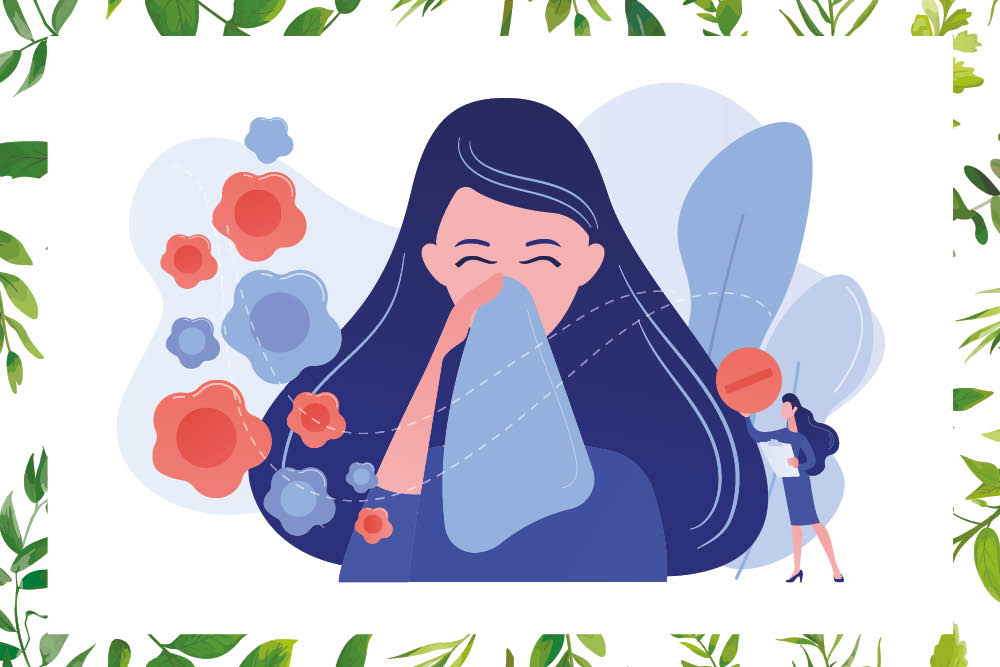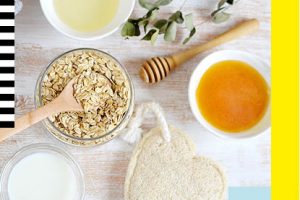8 Natural Remedies for Seasonal Allergies

Springtime means blossom, longer days… and for many of us, an annual return of the sniffles. If your eyes water every time you step outside or you dread that telltale tickle in your throat, you’re not alone. Seasonal allergies – also known as hay fever or allergic rhinitis –affect millions in the UK and beyond, and thanks to longer pollen seasons and rising pollution, the symptoms are becoming more intense and more common.
But here’s the good news: you don’t have to suffer in silence or rely only on antihistamines. There are a number of simple, natural remedies that can ease symptoms and even help reduce your sensitivity to allergens over time.
These holistic remedies won’t just mask symptoms—they can support your immune system, calm inflammation, and help your body respond more effectively to allergens. Ready to breathe easier this allergy season? Here’s what to try.
1. Raw, local honey
Let’s start with a sweet one. The idea behind raw local honey is that it contains trace amounts of the same pollen triggering your hay fever. By taking a spoonful daily, you may help your immune system build a mild tolerance to local allergens – kind of like a DIY version of immunotherapy.
Try this: Take 1 tablespoon daily, ideally starting a month before allergy season kicks in. Just make sure the honey is raw (unpasteurised) and from a local producer to get the right pollen exposure.
While scientific studies are still catching up with the anecdotal hype, many allergy sufferers swear by this approach – and it’s a lovely way to sweeten your tea.
2. Apple Cider Vinegar
Apple cider vinegar (ACV) might already have a place in your wellness routine, and it’s a great natural option for allergy season too. It’s believed to break down mucus, support the lymphatic system, and promote better gut health – all of which can help reduce the severity of allergic reactions.
Try this: Mix 1 tbsp of ACV with a little warm water and fresh lemon juice, and sip it 2–3 times a day during allergy season. It’s sharp, yes, but it’s also refreshing and effective.
3. Quercetin
Quercetin is a natural plant pigment found in brightly coloured fruits and vegetables – think apples, onions, and berries. It’s a powerful natural antihistamine, meaning it can help prevent those irritating allergy symptoms like sneezing, itching, and watery eyes.
You can increase your intake through food, but for therapeutic effects, many people turn to quercetin supplements, often taken alongside bromelain (an enzyme from pineapple that boosts absorption).
Heads up: Quercetin can interact with certain medications, so if you’re taking regular prescriptions, check with your GP or pharmacist first.
4. Nettle Leaf
Nettle might sound more like a garden hazard than a remedy, but this humble plant is actually a natural antihistamine powerhouse. It can help block the body’s histamine response, reducing inflammation and calming allergy flare-ups.
You can find nettle in capsule form, or sip on nettle tea if you prefer something gentler. Capsules tend to offer stronger results, especially during peak allergy season.
5. Spirulina
This vibrant blue-green algae is more than just a trendy smoothie add-in. Spirulina has been shown to help suppress the release of histamine, the very chemical that triggers allergy symptoms. Some small-scale studies suggest it may reduce sneezing, congestion, and nasal itching.
Try this: Stir 1 tsp of spirulina powder into your morning juice or smoothie. It’s rich in antioxidants and also supports energy levels, so it’s a bit of a multitasker.
6. Probiotics for gut health
There’s a strong link between gut health and immunity, and since a huge portion of your immune system lives in your gut, taking care of your microbiome can help ease allergic responses. A healthy gut can mean a calmer, more balanced immune system, less prone to reacting aggressively to pollen and dust.
Try this: Include fermented foods like kimchi, kefir, sauerkraut, and kombucha in your diet, and consider taking a multi-strain probiotic supplement – especially if you’ve taken antibiotics recently or have digestive issues.
7. Allergy-fighting supplements
Several vitamins and enzymes can help fortify your immune system and calm allergy symptoms naturally. Look out for:
-
Vitamin C: A natural antihistamine that can help reduce inflammation.
-
Vitamin A: Supports healthy mucous membranes.
-
Bromelain: Found in pineapple, this enzyme helps reduce nasal swelling.
-
Omega-3 fatty acids: Found in oily fish, flaxseed and walnuts – excellent for calming inflammation.
You can take these individually or look for a blended supplement designed specifically for allergy support.
8. Anti-inflammatory diet
Your diet has a big impact on how your body handles allergens. Highly processed foods, sugar, and known inflammatory triggers like dairy and gluten can exacerbate symptoms by increasing overall inflammation.
Try this: Focus on whole foods and plenty of plants. Veg like beetroot, carrots, spinach, cabbage and bell peppers are brilliant during allergy season. Add spices like turmeric, ginger and cayenne pepper, which act as natural decongestants and inflammation-busters.
And don’t forget your healthy fats – avocados, salmon, olive oil and nuts are great for your immune health too.
Beating allergies – naturally?
There’s no magic pill for allergies – but by supporting your immune system, calming inflammation, and improving gut health, you can absolutely reduce your symptoms and build resilience over time.
Over-the-counter meds like antihistamines are effective for many, but they mostly treat symptoms – not the root cause. Natural remedies take a more holistic approach, working with your body instead of just turning off the sneezing switch.
Consistency is key: The earlier you start, the better your results are likely to be. Try layering a few of these strategies together and see how your body responds.








